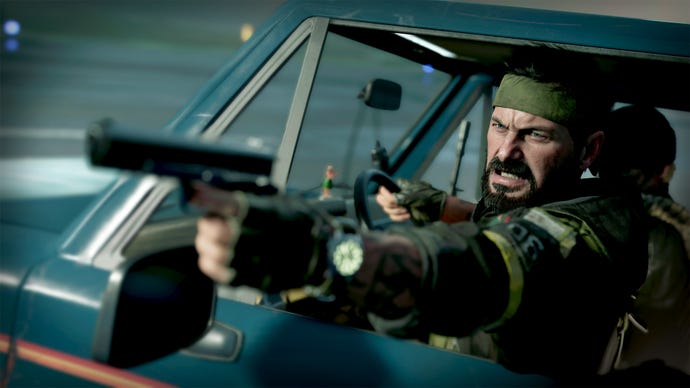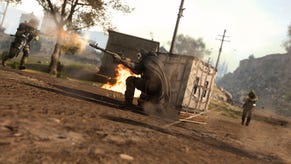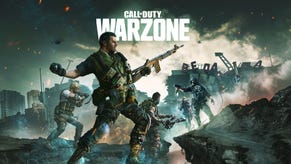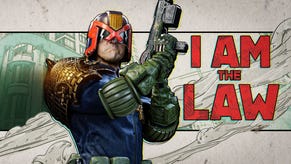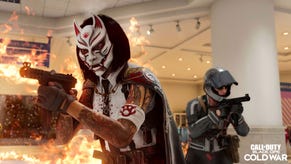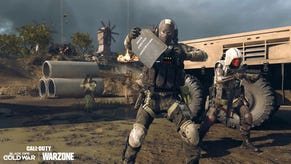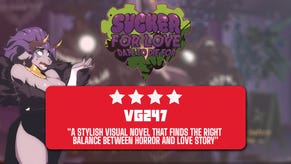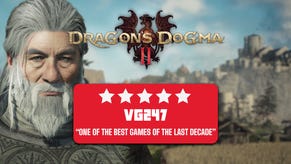Call of Duty: Black Ops Cold War Review: Status Quo With a Slick Paranoiac Sheen
A showcase of how limited even a good Call of Duty can be.
This article first appeared on USgamer, a partner publication of VG247. Some content, such as this article, has been migrated to VG247 for posterity after USgamer's closure - but it has not been edited or further vetted by the VG247 team.
It's not easy to review Call of Duty games, and the newest, Call of Duty: Black Ops Cold War is no different. In large part, Activision has found a comfortable niche with the Call of Duty series and seems to have no interest in changing it. The central tenets of the core gameplay—the way the shooting feels, the way you move, the triumvirate of Campaign, Multiplayer, and Zombie modes that make up the yearly experience—are all generally set. There's some experimentation, like removing a campaign here or adding a battle royale mode there, but each yearly Call of Duty at this point is a known quantity, varying mostly in how effectively it manages to contextualize or tweak its more stable elements.
So what does Cold War do with the recognizable energy and shape of Call of Duty? Mostly, it wraps it in a high-production-value paranoiac sheen. Cold War commits hard to both the next generation of consoles and the mediated aesthetic of the 1980s, leading to a product that feels as expansive as it is troubling. This is a fast, clean Call of Duty game, with a strong emphasis on legible action and increased player options in moment-to-moment combat. It's also a game where you are forced to stare at Ronald Reagan's uncannily reproduced visage, see his grandfatherly smile as he does what he does best and orders his subordinates to commit war crimes in the name of American exceptionalism.
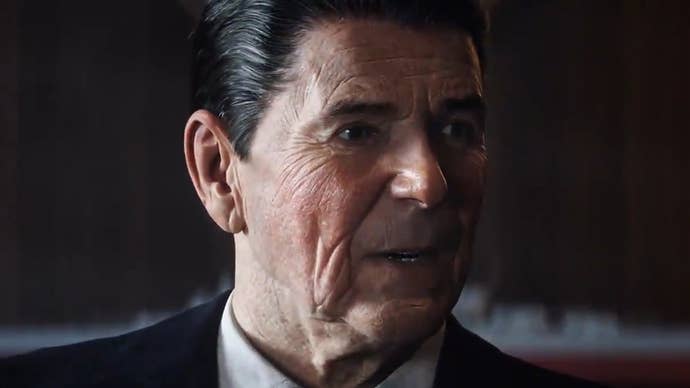
This uneasy tension between vibe and play permeates the entire experience. The campaign and multiplayer are both wrapped within an overlapping story, one that functions as a direct sequel to Call of Duty: Black Ops. In it, a super-secret Russian spy (and possibly rogue agent) called Perseus is up to some world-destabilizing shenanigans, attempting to destabilize the Cold War and do significant harm to the West. It's standard Cold War spy stuff, with the conservative sheen one has come to expect from Call of Duty since the success of Modern Warfare turned the series into a juggernaut. The good guys are whoever saves innocent (read: American) lives, no matter how they go about doing it, and the bad guys are anyone who disagrees with the agenda of the Americans.
And yet Cold War at least undergirds that paranoid America-centric point of view with some of the most compelling campaign design decisions the series has made in ages. In keeping with the setting, and with a heaping amount of influence from media like The Americans, this campaign is less linear, more focused on stealth and plainclothes operations, exercising a surprising amount of restraint in order to build drama and give players more compelling options. Can you sneak past an armada of East German police on your way to find a target? Can you navigate KGB headquarters while under deep cover? Cold War is as concerned with this sort of spycraft—meeting contacts, infiltrating cities—as it is with the big shootouts that inevitably come later. And it does both well, with a clean UI and a handful of tweaks to extant gameplay systems, like the ability to take enemies as hostages a la Metal Gear Solid, that make the moment-to-moment play easier to follow and enjoy.
It helps that the Black Ops series, more than most other Call of Duty games, has always felt like it's in on the joke. Even when it indulges in jingoistic excess, it doesn't do so with an eye to the same type of "boots on the ground" realism that other games engage in. Sure, the weapons and equipment are clearly the result of hours of consultation with actual military contacts, but the tone and storytelling owes as much to American war films and pop culture as it does any attempt at telling a "real" story about warfare. Playing a Black Ops game has always been like watching a dozen war films at once, all blended together and spiked with something potent and unnerving, a hallucinogenic clusterfuck of bullets and bright colors. If Call of Duty has become a series about ugly warriors fighting ugly wars, at least Treyarch has the self-awareness to know it, and with that awareness comes the ability to subvert or comment on it, even if only halfheartedly.
Indeed, there are times when Cold War feels like a satire of itself. In one riveting campaign setpiece, you fight through a Soviet training facility that takes the form of a parodic movie set version of an American small town. The fight is an absurdist microcosm of Call of Duty at large, a play on long-running series imagery that renders the entire enterprise as farce, a copy of a copy of a copy of an actual conflict. Elsewhere, the paranoid fury of the game's cast mixes with that sense of farcical artificiality to present a sense of American foreign policy as a coked-out fever dream, a pure expression of rage and self-righteousness filtered through stupid, complicit technocrats.
But at the same time, Cold War would never go so far as to actively condemn this. Even as the campaign moves into increasingly surreal, twisty directions (a hallmark of the Black Ops subseries), the rest of the game, from the narrative wrapper of its multiplayer mode to the loving detail with which it renders every aspect of its period soldier aesthetics, backs down from this statement in such a fashion that it seems like it may have been unintentionally made in the first place. It could never go so far as to say that the high stakes imagined by its awful American heroes are imagined, even if it will gladly say that these people are deranged. There are still bad guys to take out and a world to save. The truth—that most of the real-world conflicts that inspire a game like Cold War were unnecessary, foolish, and harmful—is too harsh for Call of Duty to really tackle at this point in its life span. To do so would risk military sponsorship, big advertiser money, and cultural ascendancy that is often considered apolitical. Activision would never.
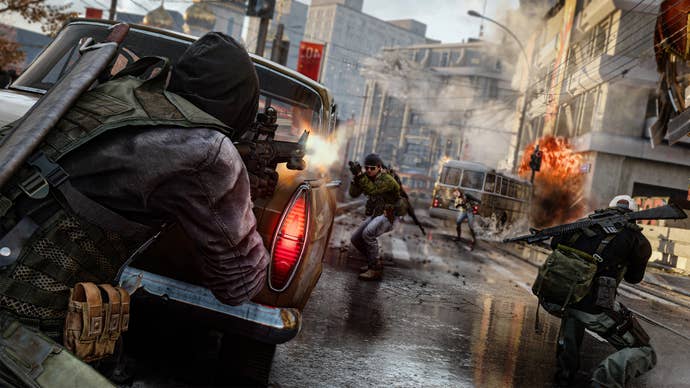
Which is a pity, because in many ways this is the best Call of Duty in years. Not only is the campaign solid, but the multiplayer is strong. The new maps and modes are welcome additions, and some of the new modes--like a slow, squad-based bomb detonation mode that feels like a nod to the increasing popularity of the battle royale Call of Duty standalone Warzone—are enthralling. Altogether, it's Call of Duty multiplayer at its strongest, snappiest, and most legible.
But even a good Call of Duty in 2020 still feels like a shadow of what it could be if it just thought a little harder, if it committed a bit more to nuance, if it pushed that small step further in wriggling its way out of the series' status quo. But it won't, and maybe it can't. So Call of Duty: Black Ops Cold War is a good Call of Duty. But it's also a showcase in how limited a good Call of Duty can still be.
ConclusionCall of Duty: Black Ops Cold War is one of the best Call of Duty games in years, with vibrant new gameplay additions and robust multiplayer offerings. Despite that, it still feels hampered by aspects of its approach and tone that would have better been left in Call of Duty's past.
